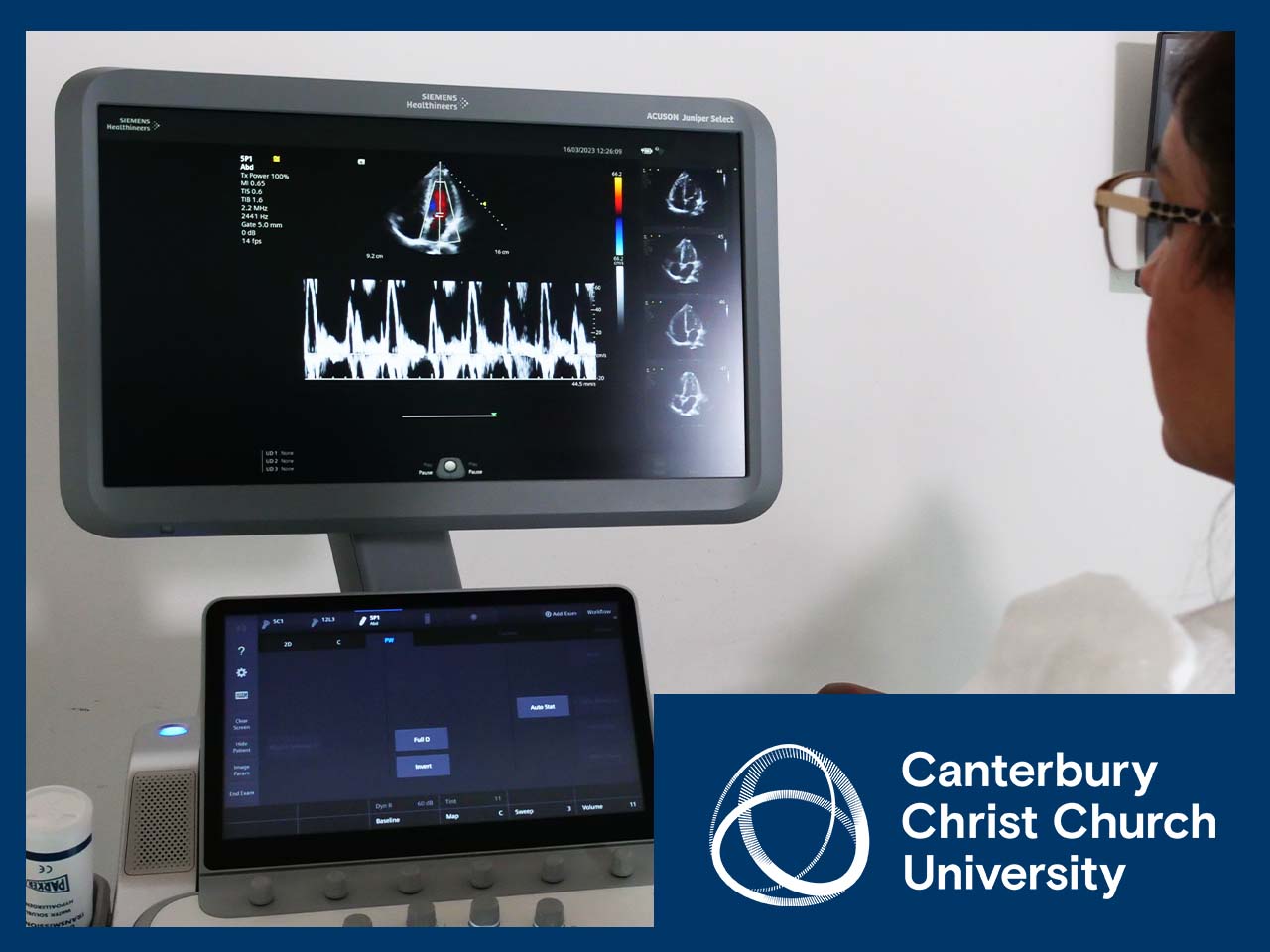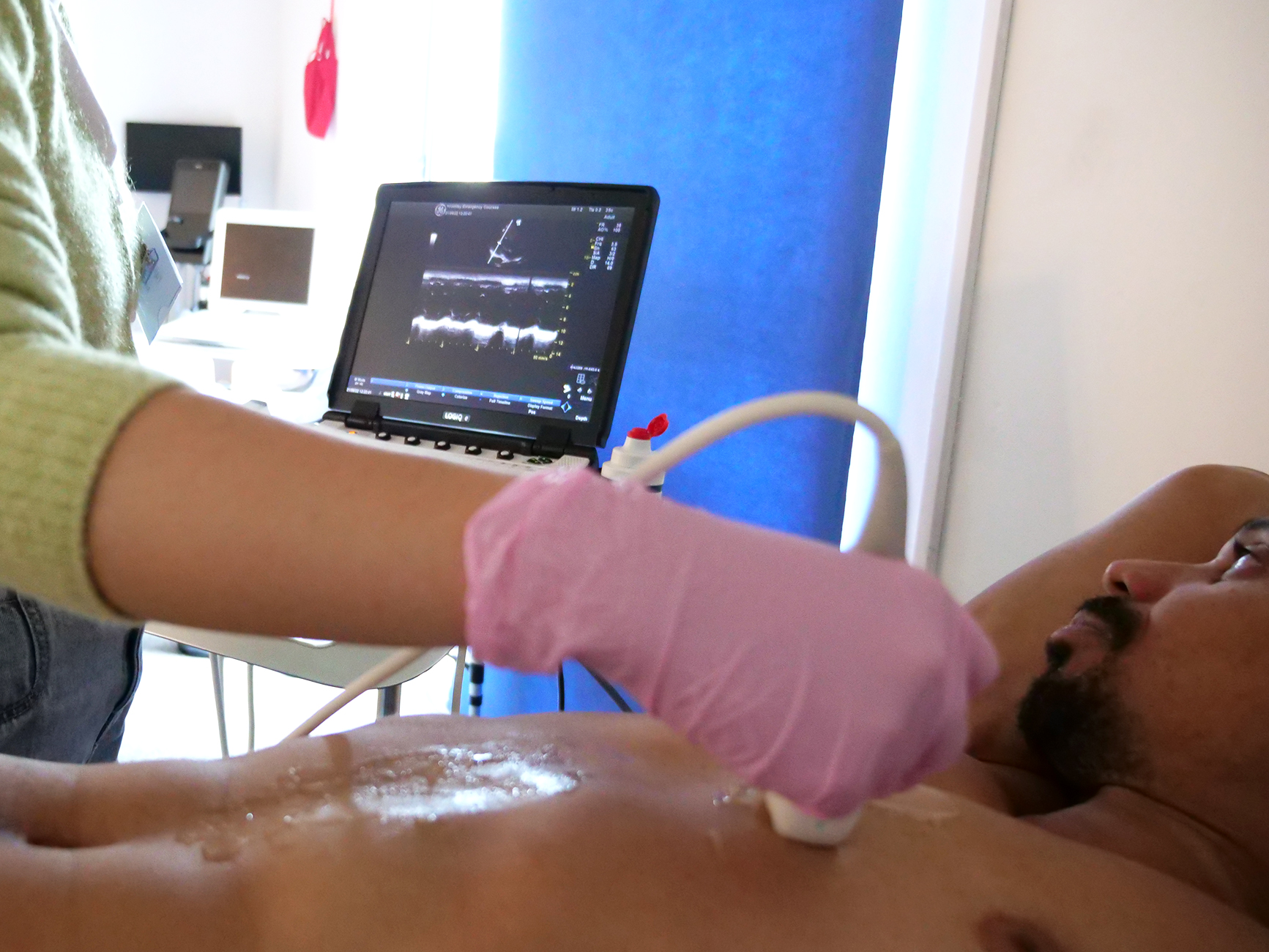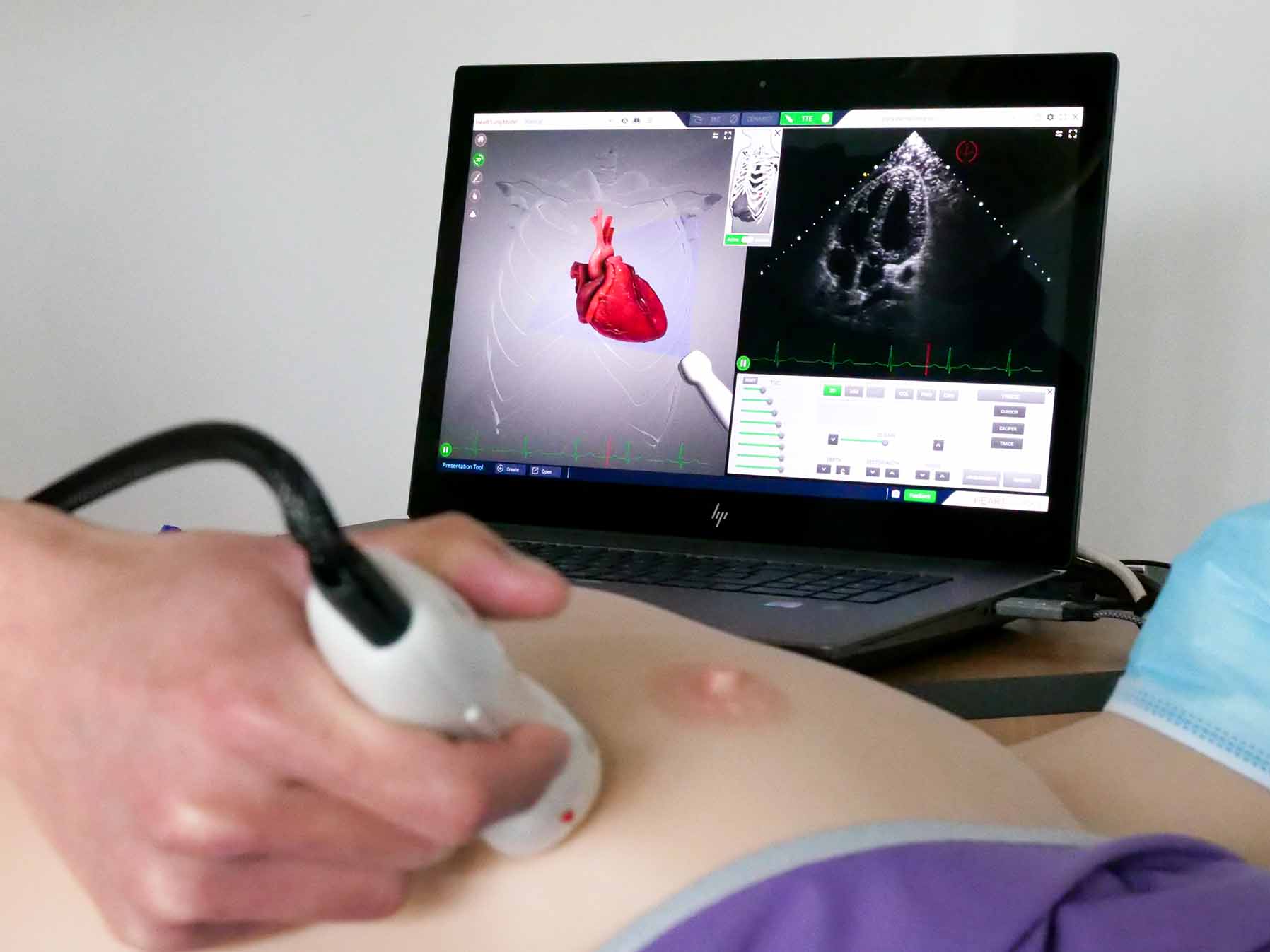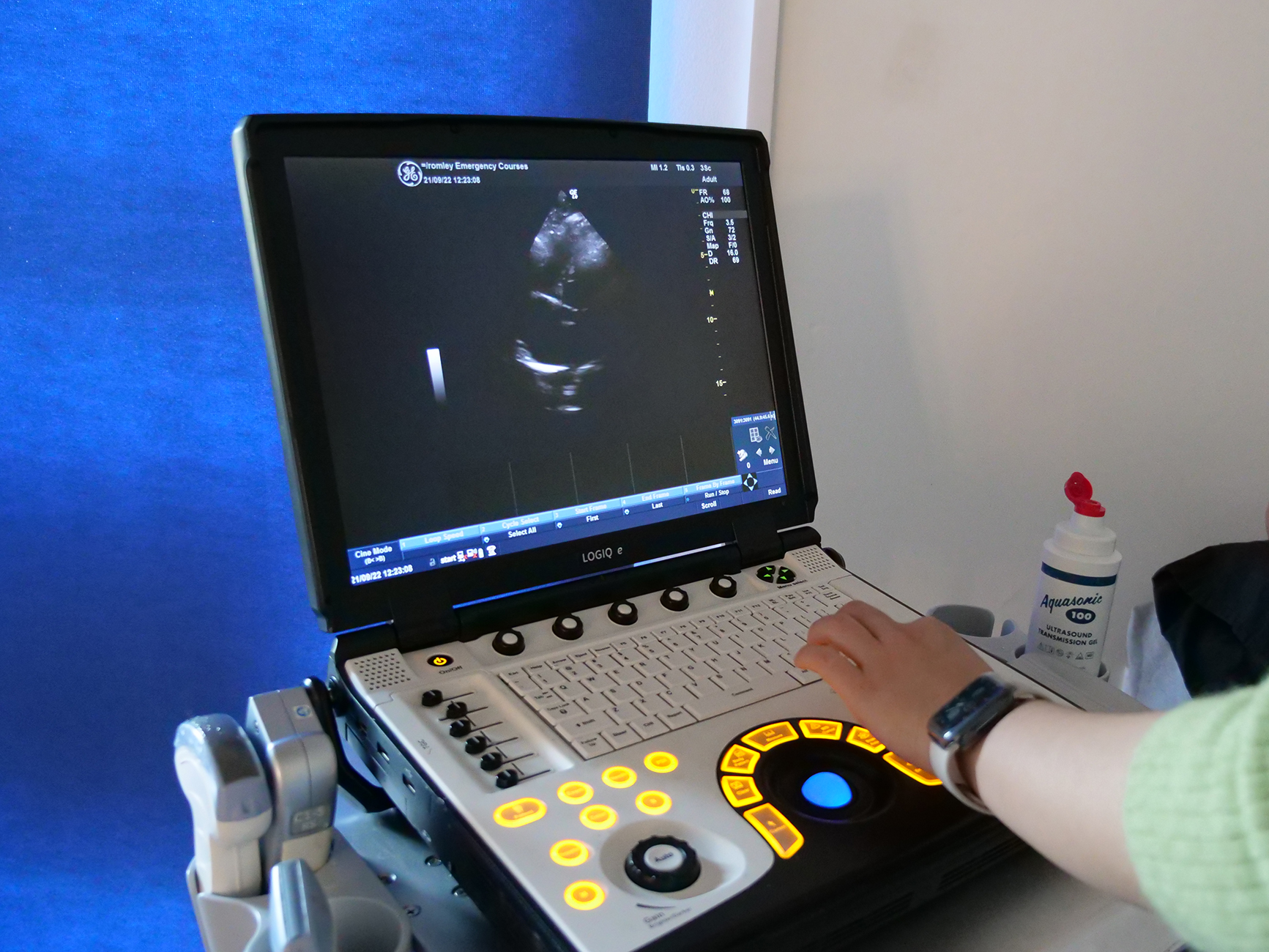Extended Cardiac Point-Of-Care Ultrasound Course (Micro-credential)
This micro-credential builds on the fundamental cardiac micro-credential. New areas covered include assessment of global function of the left ventricle and right ventricle, qualitative judgement of regional wall motion abnormalities, qualitative assessment of valve function and basic Doppler assessments.
Registration will be through Canterbury Christ Church University.
Next dates: tbc
NB: You can only enrol on 2 micro-credentials at a time
Fee: £450


19 years of experience in teaching RCEM courses
17 000 clinicians have taken our courses
4.9 out of 5 is our average Google review score

What does the Cardiac Ultrasound course cover?
- Medico-legal aspects – outlining the responsibility to practise within specific levels of competence and the requirements for training
- The value and role of departmental protocols
- Indications for examinations
- Patient information and preparation
- Relevance of ultrasound to other imaging modalities
- Informed consent
- Understanding of image acquisition and optimisation in relation to ultrasound imaging of the heart, including cardiac ultrasound conventions, standard transthoracic views and recognition of adequate views
- Scanning techniques, including the use of spectral and colour Doppler
- Understanding of normal and abnormal cardiac ultrasound appearances relevant to PoCUS
- Interpretation of the standard views in the context of PoCUS clinical problems: pulmonary embolism, pericardial tamponade, inferior vena cava (IVC) assessment and left ventricular contractility in challenging contexts
- Assessment of both left and right heart cavity dimensions, wall thicknesses and contractility
- Principles of ultrasound diagnosis in cardiac PoCUS
- Ultrasound scan reporting
- The influence of ultrasound results on the need for other imaging

How is the course taught?
Video materials will cover the knowledge content
Didactic teaching will alternate with practical sessions during the face-to-face sessions, covering the material listed above.
Practical sessions will use a range of ultrasound systems to develop scanning skills working with normal volunteers. Simulators, which allow a range of abnormalities to be examined, will be used to develop skills in imaging and identifying abnormalities.
Who will be teaching the course?
The course will be taught by experienced faculty with many years of both point-of-care ultrasound use in clinical practice and in the teaching of the relevant skills.

How will the skills of Cardiac Ultrasound be assessed?
The award of the micro-credential will require successful completion of both written and practical assessments.
The knowledge content will be assessed through a multiple-choice examination using still images where appropriate.
Practical skills will be assessed through obtaining optimal images on normal subjects and through obtaining optimal images of simulated pathology on simulators.
You can find out more about our micro-credentials here.
What People Say About Our Micro-Credentials Courses
Subscribe to Bromley Emergency Courses’ weekly email newsletter to keep up with the latest emergency medicine training news and courses
*By proceeding you give your consent to be contacted via email with updates on courses and events by Bromley Emergency Courses. You may unsubscribe from these communications at any time. We will never share your details with 3rd parties and will only use your email to send you information about our upcoming courses and other offers.

